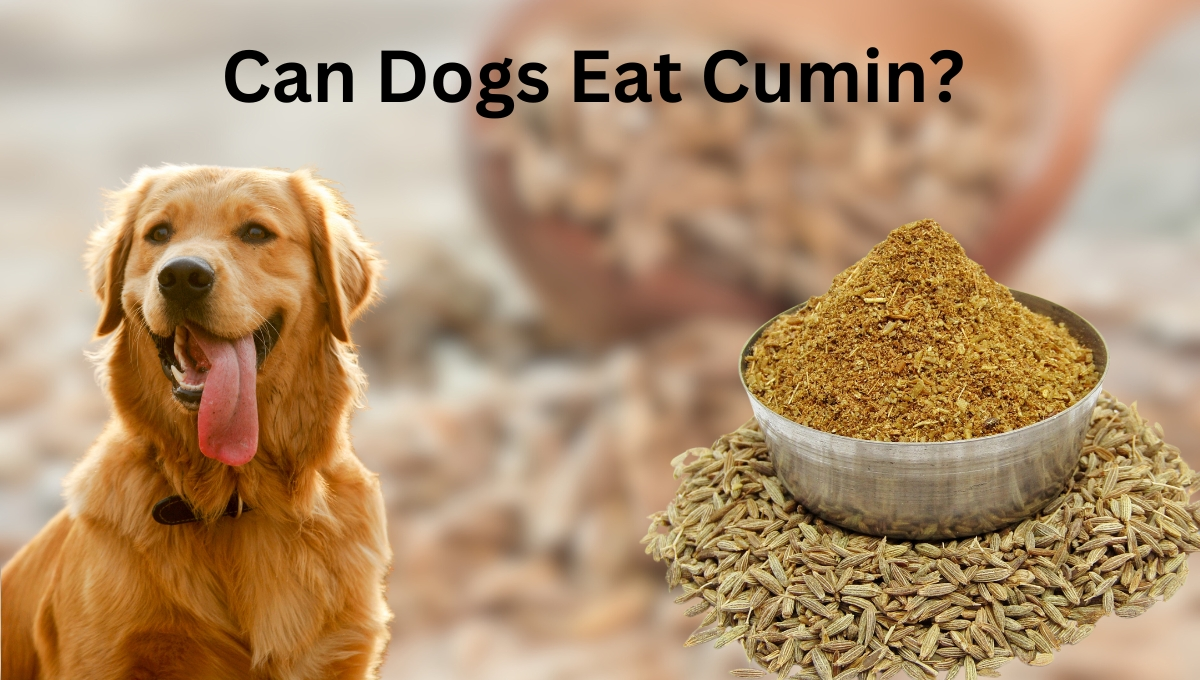Can Dogs Eat Cumin?
Cumin, derived from a plant in the parsley family, is commonly used in various cuisines for its earthy flavor and health benefits. Cumin is generally safe for dogs in small quantities and can be included in their diet after veterinary approval. Can Dogs Eat Cumin? The spice is valued for its anti-inflammatory properties and dietary fiber, which can benefit dogs with joint pain or digestive issues. However, excessive amounts of cumin can lead to gastrointestinal upset or more serious health problems like heart palpitations.
Although cumin is not toxic to dogs, its strong flavor and the potential for digestive issues mean it should only be given in limited amounts. It’s often used in dog treats or food recipes to add flavor, but due to the small quantities consumed, it doesn’t offer significant health benefits. Always consult your veterinarian before introducing new spices to your dog’s diet to ensure its safety and well-being.
Nutritional Benefits of Cumin for Dogs
Cumin powder is rich in essential nutrients such as fatty acids, dietary fiber, vitamin E, iron, and antioxidants, offering various health benefits for humans, including improved cholesterol levels and immune system support. However, when it comes to dogs, the benefits are minimal. The tiny quantities that dogs consume don’t provide significant health advantages. Despite cumin’s nutritional value, its impact on dogs is limited due to their small intake and potential digestive sensitivity.
Although cumin can enhance flavor in dog food, its health benefits for dogs are negligible compared to its effects on humans. Overuse can lead to gastrointestinal issues, gas, and discomfort, particularly in dogs with sensitive stomachs or allergies. Therefore, while cumin is a valuable spice for people, it should be used cautiously and sparingly for dogs, and it’s best to consult a veterinarian before incorporating it into their diet.

Why Can Dogs Eat Cumin?
Cumin is not toxic to dogs and can be safely included in their diet in small amounts. It’s a good way to add a bit of fiber and nutrients to their meals. However, excessive cumin can cause gastrointestinal issues, so moderation is crucial.
It’s important to distinguish cumin from curcumin, the active ingredient in turmeric. While cumin is a standalone spice, curcumin, found in turmeric, offers various health benefits such as supporting cardiovascular health and aiding in weight management. Turmeric’s benefits for dogs include potential improvements in memory, joint health, and overall metabolism. Due to its challenging absorption, turmeric is often used in formulations like golden paste, which combines it with more digestible ingredients like coconut oil. Always consult your veterinarian and choose high-quality supplements to ensure the best results for your dog’s health.
What Is Cumin
Cumin, derived from the Cuminum cyminum plant, is a spice traditionally used in cooking and medicine. It originates from the Mediterranean region and is known for its earthy flavor. Cumin is a staple in many cuisines, especially Middle Eastern dishes, and is a key ingredient in chili powder. While it offers significant health benefits to humans, such as anti-inflammatory and antioxidant effects, these benefits are minimal for dogs due to their limited intake of the spice.
Cumin seeds contain essential oils like cumin aldehyde, which give the spice its distinctive taste and aroma. Although it shares some similarities with turmeric, cumin should not be confused with curcumin, the active compound in turmeric. While safe in small amounts, cumin should be used sparingly in a dog’s diet to avoid potential gastrointestinal issues, and as always, consult a vet for guidance on safe dietary additions for pets.
How Much Cumin Can a Dog Safely Eat?
When giving cumin to your dog, the quantity depends largely on their size. A maximum of one teaspoon is advised for large dogs, while smaller breeds should not exceed a quarter teaspoon. It’s important to introduce cumin gradually, starting with a pinch to see if they like the flavor and to monitor any potential sensitivity. Overfeeding cumin can lead to gastrointestinal issues, including bloating, diarrhea, and gassiness, particularly in senior dogs or those with sensitive stomachs.
Though cumin is not toxic to dogs, it can cause digestive problems if given in large quantities. The spice is known for its health benefits in humans, like its anti-inflammatory properties and vitamin E content, but dogs don’t receive significant health advantages from it. If using cumin in your pet’s diet, it should always be in small amounts, ensuring no adverse effects. Always consult your vet before introducing new spices into your dog’s meals, especially if they have a sensitive digestive system.

Is Cumin Safe For Dogs
Cumin, though a healthy spice for humans, offers limited benefits for dogs due to the small quantities they can safely consume. While it is safe for dogs in small amounts, overfeeding cumin can lead to digestive issues like an upset stomach or excessive gas. Any potential benefits, such as supporting weight loss, regulating blood pressure, or improving blood sugar levels, are only possible in controlled doses.
Animal studies have shown some health improvements from cumin, but these were conducted on mice, and it’s unclear whether the same applies to dogs. For safety, cumin should be introduced gradually into a dog’s diet, with no more than a teaspoon for larger breeds. In small amounts, cumin may support your dog’s immune system without causing any digestive discomfort.







